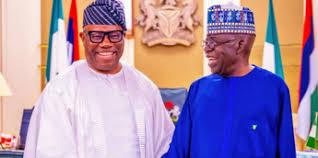By Milcah Tanimu
A new controversy has emerged surrounding the purchase of a new presidential jet for President Bola Ahmed Tinubu, with Nigerian lawmakers expressing surprise over the acquisition. The recent procurement of an Airbus A330 has sparked debates over the transparency and process behind the purchase.
Reports surfaced in late June indicating that the Nigerian government had acquired the Airbus A330 from a German bank, which had previously seized the aircraft from an unnamed Arabian prince who defaulted on a significant debt. However, the Presidency did not provide an official statement on the matter, leading to public speculation and confusion.
Senate President Godswill Akpabio addressed the issue during a recent plenary session, clarifying that the National Assembly had not been formally approached regarding the jet’s purchase. Akpabio emphasized that no official request for approval had been made to the Senate, and highlighted the potential risks associated with outdated aircraft, citing incidents involving other world leaders.
“We care about the president and the Nigerian people. We will approve things that will benefit the Nigerian people,” Akpabio stated, adding that the Senate had not yet reviewed any such request. He assured that the National Assembly would address issues that contribute positively to governance.
The controversy intensified when it was reported that three Nigerian aircraft were seized by a Chinese firm following a French court’s ruling in a legal dispute between the Ogun State government and Zhongshan Fucheng Industrial Investment. One of these aircraft, an Airbus A330, was reportedly released to allow President Tinubu to attend a meeting with French President Emmanuel Macron.
A presidential spokesperson confirmed the acquisition of the jet, asserting that the matter was settled and questioning how the aircraft could have been withheld by the Chinese firm if it had not been purchased. The spokesperson suggested that the jet might have been acquired under the Service Wide Vote, potentially bypassing National Assembly approval.
Lawmakers, however, remain firm in their stance that they were not involved in the approval process. A Senator noted that the deal was not discussed in plenary and had not been tabled for consideration. Members of the House of Representatives echoed this concern, stating that no details of the jet purchase appeared in the main or supplementary budgets.
As the National Assembly awaits further clarification, the public continues to question the legitimacy and transparency of the multi-million-dollar deal, seeking answers on how such significant expenditures are approved without legislative oversight.

